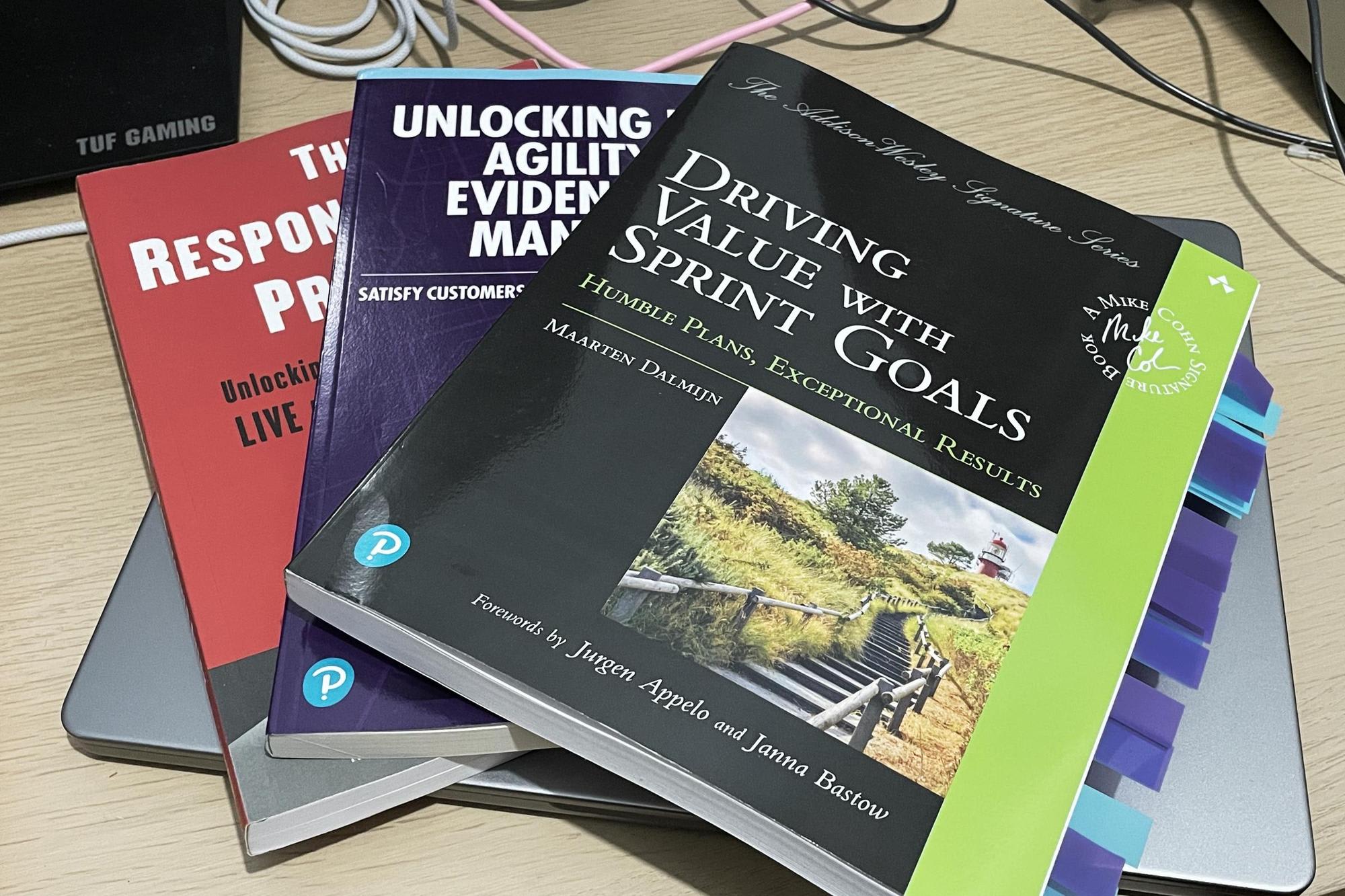I have been logging all the books I have read since 2023. Last year, I have read 15 books. Although I do not have the data for 2022, it is a remarkable improvement compared to my memory.
In January, I found an online challenge by chance suggesting that busy believers read two Bible chapters a day. I borrowed this challenge for my book-reading habit. Since then, I picked a book, whether a physical book or an ebook and read at least two chapters a day.
Things went well for a few weeks, but I soon found it difficult to manage. The length of a chapter varies greatly. Books like Maarten Dalmijn’s “Driving Value with Spring Goals: Humble Plans, Exceptional Results” consist of many chapters with about ten pages each. Harry Frankfurt’s “On Bullshit,” however, does not contain any chapter. How can I justify that reading two chapters is enough?

Part of my recent readings
After that, I revisited my original intention of cultivating the reading habit. Due to the challenges in my career and my desire to enhance my knowledge in various areas like Agile, coaching and servant leadership, I want to gain new knowledge from writers and learn by applying it or summarising it in my own words. Moreover, I want to consume more long-form content instead of spending time on social platforms.
It appears that reading two chapters a day does not align with my goal. Therefore, I modified my measurement to read two books per month. You may argue that books can vary from 80 pages to 600 pages, but reading two books per month encourages focusing on completing an entire book rather than consuming fragments of multiple books. It also allows for flexibility when I am occupied with other things and cannot spare half an hour to read two chapters. If all goes smoothly, I will read 24 books this year.
Sometimes, changing measurements is essential when they become irrelevant. Always reassess them by revisiting the goal. Necessarily adapting the measurements will aid in achieving the goal more efficiently.